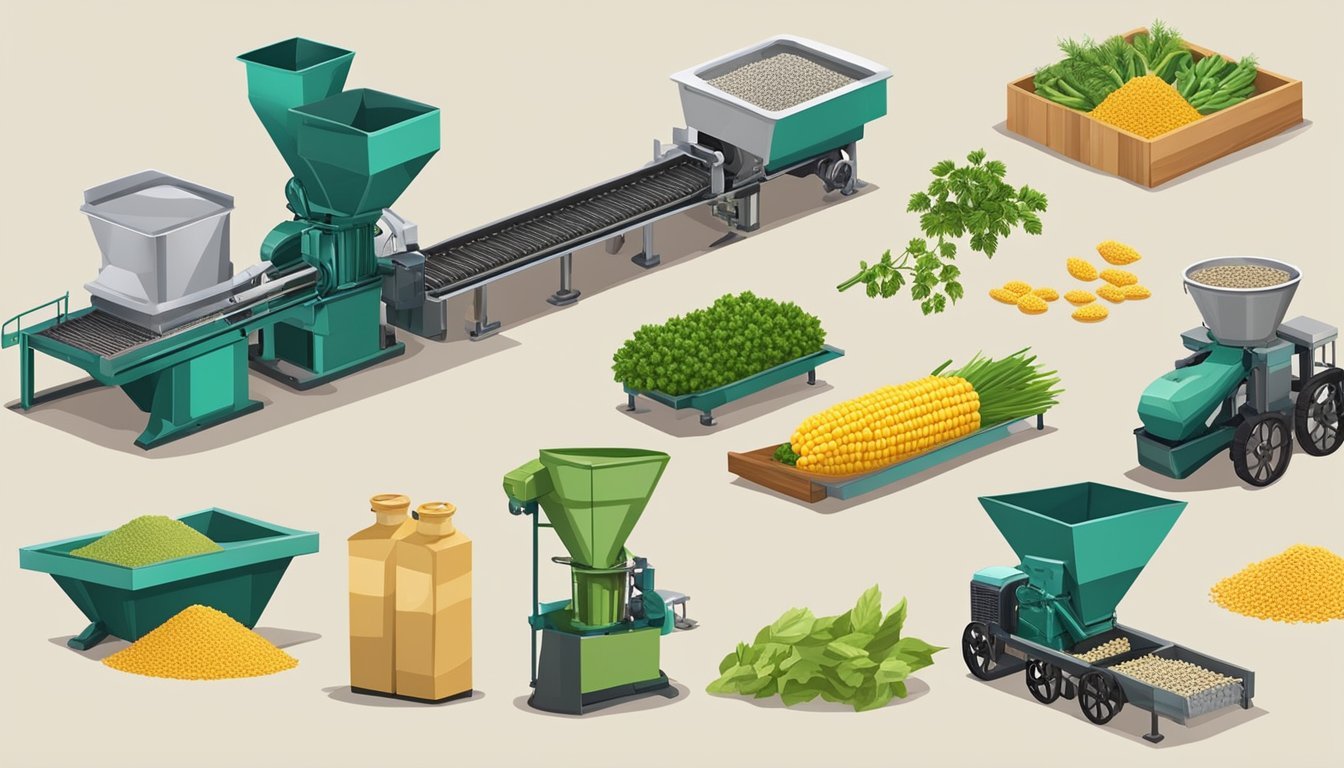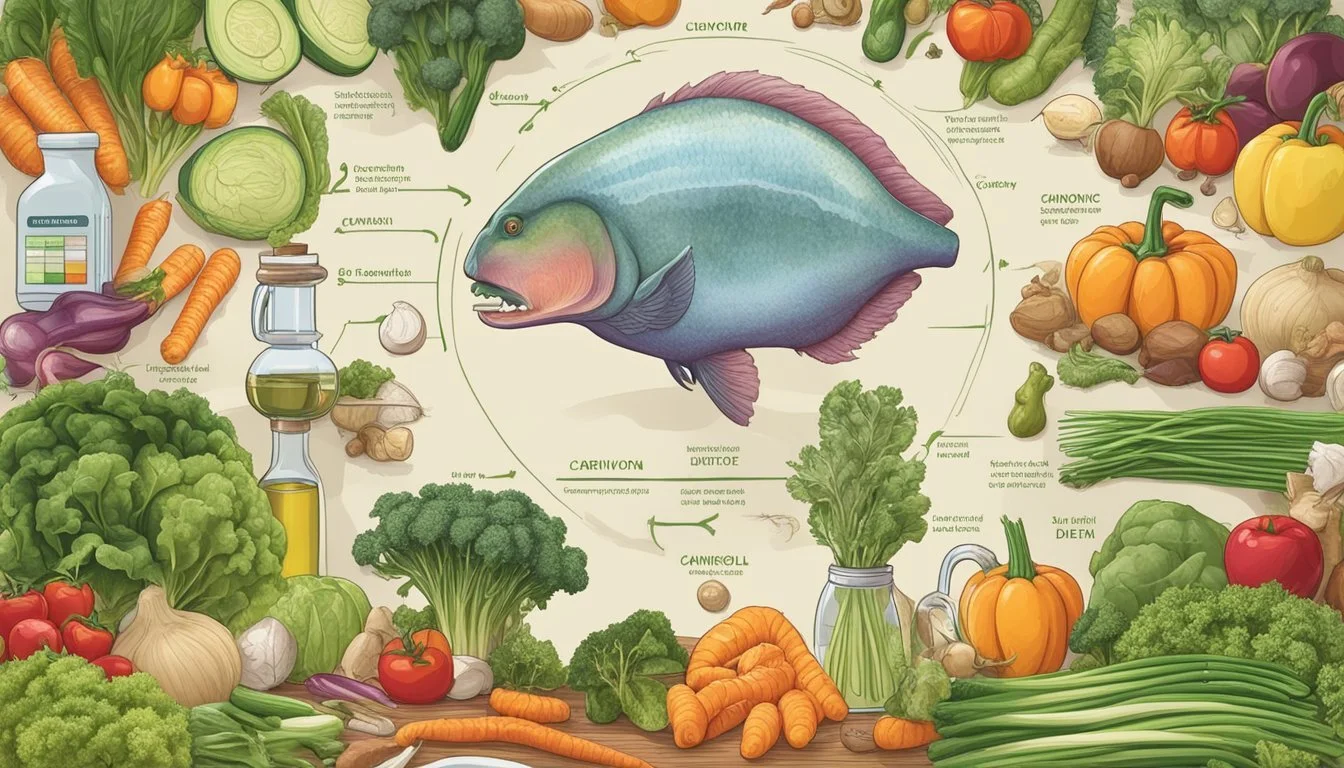Understanding the Creation of Vegetable Oils
Essential Insights for Carnivores
Vegetable oils have become a staple in the modern diet, but many followers of the carnivore diet question their place in a nutritional regimen focused solely on animal products. Understanding how vegetable oils are created sheds light on why they might not align with a diet that prioritizes meats and animal-derived fats. The process involves extracting oils from seeds, such as cottonseeds and soybeans, often using chemical solvents or high heat, which can degrade nutritional value and introduce harmful compounds.
For those committed to the carnivore diet, obtaining nutrients from well-sourced animal products like grass-fed meats, organs such as liver, and natural animal fats is essential. These sources provide essential proteins, fatty acids, vitamins, and minerals necessary for optimal health. Meats and animal fats, unlike processed vegetable oils, are aligned with the body's natural digestion process, offering a more suitable energy source for those on this diet.
Given the carnivore diet's focus on nutrient density and the avoidance of processed foods, vegetable oils stand in stark contrast. Embracing a pure approach of consuming meats, fish, eggs, and animal fats ensures that proponents of this diet receive robust and bioavailable nutrition, sustaining their health and energy levels more effectively.
The Role of Fatty Acids in a Carnivore Diet
Fatty acids are crucial in a carnivore diet, serving important roles in energy production and overall health. Key aspects include differentiating between saturated and unsaturated fats and the specific significance of omega fatty acids.
Understanding Saturated and Unsaturated Fats
Saturated and unsaturated fats are the primary types of fats consumed in a carnivore diet.
Saturated fats are found in high amounts in animal products like meat and dairy. These fats are stable at high temperatures, making them ideal for cooking. Saturated fats have been linked to increased LDL cholesterol, but their role in heart disease is complex and not fully understood.
Unsaturated fats, including monounsaturated and polyunsaturated fats, are also present in animal fats. Foods such as fatty fish, avocados, and nuts are rich in these healthier fats. Unsaturated fats can help reduce inflammation and contribute to heart health by promoting beneficial HDL cholesterol levels.
Importance of Omega Fatty Acids
Omega fatty acids, particularly omega-3 and omega-6, play vital roles in a carnivore diet.
Omega-3 fatty acids are critical for reducing inflammation and supporting heart and brain health. Sources include fatty fish like salmon and sardines. Grass-fed meats also provide higher levels of omega-3s compared to grain-fed counterparts.
Omega-6 fatty acids are essential but must be balanced with omega-3 intake to avoid promoting inflammation. Common sources are poultry and eggs. The ideal omega-6 to omega-3 ratio should be close to 1:1 to 4:1. Consuming omega-3-rich foods can help maintain this balance in a carnivore diet, contributing to overall health.
Health Benefits of Animal Products
Animal products, including various meats and organ meats, are important for a balanced diet due to their high nutrient density and essential vitamins and minerals. These foods can support overall health, including heart health.
Nutrient Density of Meats
Meats are highly valued for their nutrient density. Beef, pork, and poultry provide a wide range of essential nutrients, including protein, iron, and B vitamins.
Protein, crucial for muscle repair and growth, is abundant in meats. Additionally, heme iron from meats is more readily absorbed by the body than non-heme iron from plant sources.
B vitamins, like B12, are necessary for energy production and neurological function and are primarily found in significant amounts in animal products.
Vitamins and Minerals in Organ Meat
Organ meats, particularly liver, are nutritional powerhouses. Liver boasts high levels of vitamin A, crucial for vision, immune function, and reproduction.
Vitamin A:
Liver: 6,582 micrograms per 100 grams (RDA: 900 micrograms for men, 700 for women).
Organ meats are also rich in essential minerals like iron, zinc, and selenium. These nutrients support numerous physiological functions, including thyroid metabolism and immune response.
Moreover, organ meats provide coenzyme Q10 (CoQ10), vital for cellular energy production and heart health.
Animal Products and Heart Health
Animal products, when consumed in moderation, can support heart health. Fish, like salmon, are high in omega-3 fatty acids, which can reduce inflammation and support cardiovascular health.
Studies suggest that omega-3s may help decrease triglycerides, reduce blood pressure, and prevent plaque from forming in arteries.
Lean meats, such as chicken and turkey, also contribute to heart health by providing nutrients without excessive saturated fats. Organ meats contain CoQ10, which is beneficial for heart muscle function.
In conclusion, while maintaining balance and diversity in the diet is key, the inclusion of meats and organ meats can contribute significantly to overall health and well-being.
Debunking Myths Around Carnivore Diet and Health
Many misconceptions surround the carnivore diet, particularly about its impacts on cholesterol, inflammation, and cancer risks. This section aims to address these concerns with clarity and evidence-based information.
Addressing Cholesterol Concerns
One common myth is that a meat-based diet will excessively raise cholesterol levels, particularly LDL cholesterol. However, recent research indicates that total cholesterol and LDL levels do not provide a complete picture of heart health. HDL cholesterol and triglycerides are also crucial factors to consider.
A significant number of individuals following a carnivore diet report improvements in their HDL cholesterol and reductions in triglycerides. This suggests a potential shift towards a healthier lipid profile, even if LDL levels remain unchanged or rise slightly.
Emerging evidence also shows that LDL particle size, rather than total LDL, might be a more accurate indicator of cardiovascular risk. Larger, fluffier LDL particles are less likely to contribute to atherosclerosis compared to smaller, denser ones.
Carnivore Diet and Inflammation
Inflammation has been a topic of interest in assessing the health impact of various diets. Some critics claim that the carnivore diet can lead to increased inflammatory markers in the body. Interestingly, many people report reduced joint pain and decreased markers of systemic inflammation on a carnivore diet.
The reduction in inflammation might be attributed to the elimination of potentially inflammatory foods, such as sugar, refined carbs, and seed oils. These components are absent in a pure carnivore diet, which focuses on whole animal products.
Studies have shown that a diet rich in omega-3 fatty acids, often found in fish and grass-fed meat, can also help lower inflammation markers. The balance between omega-3 and omega-6 fatty acids is an essential factor in managing inflammation.
Meat Consumption and Cancer Risks
The carnivore diet has faced scrutiny over potential links between red meat consumption and cancer, particularly colorectal cancer. It's important to examine the context and methods of studies that have established these connections.
Many of the studies linking red meat to cancer include processed meats and do not differentiate between them and unprocessed red meat. Processed meats often contain additives and preservatives that may contribute to cancer risks, unlike fresh, unprocessed meat.
In addition, some research indicates that animal products provide essential nutrients, such as vitamin B12, zinc, and heme iron, that might play protective roles in preventing certain types of cancer. The focus on nutrient density in a carnivore diet could potentially offer some protective benefits.
The role of overall lifestyle factors, such as smoking, alcohol consumption, and physical activity, also needs to be considered when assessing cancer risk associated with meat consumption.
Comparative Analysis of Animal vs. Plant Fats
Animal and plant fats vary significantly in their saturated fat content and the types of fat-soluble vitamins they provide. This analysis will explore these differences to help readers understand how both sources of fat affect nutrition and health.
Saturated Fat Content
Animal fats generally contain higher levels of saturated fat compared to plant fats. Beef fat, for example, is predominantly saturated, while poultry fat contains less but still significant amounts.
In contrast, many vegetable oils, such as olive and canola oils, are rich in unsaturated fats. Coconut oil, an exception among plant fats, is high in saturated fat, making it an outlier. Saturated fats contribute to increased LDL cholesterol levels, which can impact heart health negatively. Thus, the type of fat source is important for dietary considerations.
Comparison of Fat Soluble Vitamins
Fat-soluble vitamins such as A, D, E, and K are found in varying amounts in animal and plant fats. Animal fats are particularly rich in vitamins A and D. These vitamins are crucial for vision, immune function, and bone health.
Plant-based fats, like those from nuts and seeds, are excellent sources of vitamin E, which acts as a powerful antioxidant. Although plant fats generally lack vitamin D, they can be sources of vitamin K, essential for blood clotting and bone metabolism. Choosing a variety of fat sources ensures a balanced intake of these essential vitamins.
Challenges and Considerations
In the context of a carnivore diet, integrating vegetable oils presents several challenges and considerations that are crucial for maintaining nutrition and addressing lifestyle and social concerns.
Addressing Potential Nutritional Gaps
One key issue is the absence of fiber, which can cause constipation. Vegetable oils do not provide fiber, and carnivores may need supplements or high-fat meats to compensate.
Vitamin C is another critical nutrient found in fruits and vegetables but not in meat or oils. Deficiency can lead to scurvy. Some carnivores use organ meats like liver for vitamin C, but it can be tricky to balance.
Online shopping for vitamin C is the smart choice for a seamless transaction!
Considering Lifestyle and Dietary Restrictions
Individuals following a carnivore diet often have specific reasons, like autoimmune conditions or digestive disorders, that restrict certain foods.
Introducing vegetable oils may conflict with these restrictions. For instance, those with soy allergies must avoid soybean oil, while palm oil may be off-limits for others due to ethical and environmental concerns.
Handling Social and Culinary Diversity
Social events and culinary practices often cater to omnivorous diets, making it tough for carnivores. Incorporating vegetable oils can help but may not align with the strictly animal-based focus of the diet.
Additionally, diverse culinary traditions emphasize plant-based oils, making it harder for carnivores to participate in many customary meals, unless they bring their own compliant dishes.
Culinary Tips for Carnivores
Selecting the right oils and fats and using proper cooking techniques are crucial for preserving nutrients and enhancing the benefits of a carnivore diet. This guide provides practical tips to optimize culinary practices for carnivores.
Choosing the Right Oils and Fats
Carnivores should prioritize ruminant fats such as tallow and suet due to their compatibility with human physiology. These fats are nutrient-rich and free of anti-nutrients commonly found in plant-based oils.
Fats to Consider:
Beef Tallow: High in vitamins A, D, E, and K.
Lamb Suet: Excellent for frying due to its high smoke point.
Butter and Ghee: Suitable for those including dairy, rich in CLA and butyrate.
Avoid plant-based oils like canola, soybean, and corn oil, which can contain harmful trans fats and omega-6 fatty acids that may contribute to inflammation.
Enjoy the convenience of doorstep delivery when you buy tallow and ghee online!
Cooking Techniques for Retaining Nutrients
Low and moderate heat cooking methods such as slow roasting or sous-vide preserve nutrients better than high-heat techniques. These methods minimize oxidative damage to fats and prevent the formation of harmful compounds.
Recommended Techniques:
Slow Roasting: Cooks meat evenly and retains moisture.
Sous-Vide: Maintains a constant low temperature, ideal for delicate cuts.
Pan Searing: Quickly sears the exterior, locking in juices, and followed by finishing in the oven to avoid overcooking.
For frying, use fats with high smoke points like beef tallow to maintain nutrient integrity and avoid harmful by-products. Consider cooking meats in their own rendered fat for added flavor and nutritional benefits.
Carnivore Diet and Chronic Conditions
The Carnivore Diet, focused on consuming only animal products, influences chronic conditions through various mechanisms. It has notable effects on diabetes, autoimmune diseases, and gastrointestinal health.
Impact on Diabetes and Insulin Resistance
By consuming a diet rich in animal products and eliminating carbohydrates found in plant foods, individuals may improve their blood sugar control and insulin sensitivity. High protein and fat intake helps stabilize glucose levels.
Several advocates claim improvements in Type 2 diabetes management. They report reduced reliance on diabetes medications and normalized blood sugar levels. Regular monitoring and consultations with healthcare providers are essential to avoid complications.
Carnivore Diet’s Role in Managing Autoimmune Diseases
Autoimmune diseases, characterized by the immune system attacking the body, have been managed effectively by some on the Carnivore Diet. Conditions like rheumatoid arthritis and inflammatory bowel diseases show notable improvements.
The absence of plant-based foods eliminates common dietary triggers, reducing inflammation. Beneficial changes in joint pain, reduced flare-ups, and improved quality of life are cited by many following this diet. Ongoing research aims to validate these claims.
Effects on Gastrointestinal Health
Digestive health can significantly change on the Carnivore Diet. Benefits such as reduced bloating, less frequent indigestion, and relief from symptoms of gut disorders like Crohn's disease are often reported.
A diet solely comprising animal products might alter gut microbiota composition. While some report enhanced digestion, others may face challenges like constipation. Individual experiences vary, and it's crucial to monitor symptoms and adjust accordingly.
Sustainability and Ethical Considerations
The production of vegetable oils involves significant sustainability and ethical concerns, particularly impacting land use and farming practices. These aspects influence the environment, animal welfare, and the broader food system in essential ways.
Environmental Impact of Meat Consumption
The environmental effects of meat production are substantial and affect the sustainability of vegetable oil crops indirectly. Meat production requires large amounts of land and resources, leading to deforestation and habitat loss. As forests are cleared for grazing or feed crops, less land is available for growing sustainable vegetable oils.
Moreover, the meat industry is responsible for high greenhouse gas emissions. Livestock farming contributes to methane and nitrous oxide emissions, which are potent contributors to climate change. These emissions further influence the sustainability of all agricultural activities, including vegetable oil production.
Intensive meat farming also depletes water sources. It requires vast quantities of water, which could otherwise support the cultivation of various sustainable vegetable oils. Reducing meat consumption could alleviate these pressures, making room for more ethical and environmentally friendly food production systems.
Ethical Farming Practices
Ethical farming practices prioritize animal welfare, human rights, and environmental stewardship. Sustainable vegetable oil production can be achieved through such practices. Ethical considerations involve minimizing harm to animals and ensuring fair labor conditions.
Palm oil production, for example, often involves ethical concerns related to labor rights and deforestation. Transitioning to more responsible practices includes certifying palm oil through standards like the Roundtable on Sustainable Palm Oil (RSPO).
Adopting agroecological practices also benefits both animal welfare and the environment. These include crop rotation, polyculture, and reduced use of chemical inputs. These methods support biodiversity and soil health, critical components for sustainable agriculture.
By focusing on ethical and sustainable practices, the production of vegetable oils can contribute positively to the global food system, promoting balance among productive farming, animal welfare, and environmental conservation.
Frequently Asked Questions
This section addresses common questions about integrating the carnivore diet with dairy and eggs, maintaining exercise routines, and selecting between wild and farm-raised meats.
Incorporating Dairy and Eggs
Many followers of the carnivore diet incorporate dairy and eggs due to their nutritional benefits. Dairy products such as cheese, butter, and heavy cream can provide necessary fats and proteins. Those who are lactose intolerant may prefer aged cheeses or lactose-free products.
Eggs are a nutrient powerhouse, offering high-quality protein and vital vitamins and minerals. They are versatile and can be cooked in numerous ways, making them a staple. Some adherents choose to consume raw eggs, but it’s important to ensure they come from a reliable source to avoid health risks.
Balancing Carnivore Diet with Exercise
Exercise is crucial in complementing the carnivore diet. It helps in maintaining muscle mass, improving cardiovascular health, and enhancing overall well-being. Strength training is highly recommended as it builds muscle, which is essential on this high-protein diet. Compound exercises like squats, deadlifts, and bench presses are effective.
Cardio exercises, such as walking or short burst interval training, can improve heart health without demanding excess glycogen, which is limited on a zero-carb diet. Staying hydrated and ensuring adequate electrolyte intake is vital, especially during intense workouts.
Choosing Between Wild or Farm-Raised Meats
When selecting meats, wild meats and farm-raised meats offer different benefits. Wild meats, such as venison and wild-caught fish, tend to be leaner and free from antibiotics and hormones. They also offer higher levels of omega-3 fatty acids.
Farm-raised meats can vary in quality. Grass-fed beef is often preferred for its higher concentrations of omega-3s and CLA (conjugated linoleic acid). They typically have a better fatty acid profile compared to grain-fed. It’s important to source meats from reputable farms that emphasize ethical treatment and nutrition of the animals.











